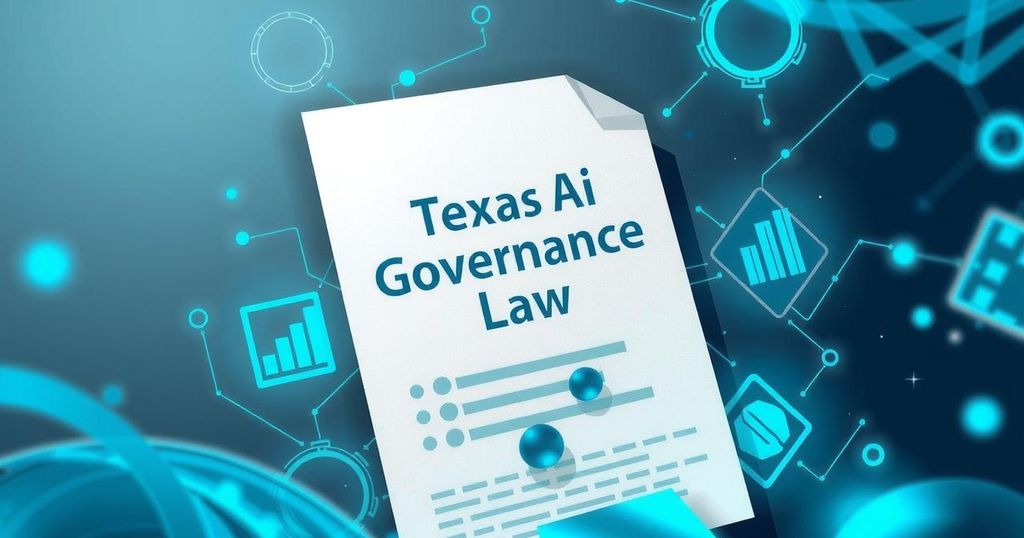Texas Governor Signs Revised AI Legislation Focused on Government Use
The Texas Responsible Artificial Intelligence Governance Act was signed into law, significantly reducing the original regulations for private employers while maintaining a focus on preventing harmful AI uses. Effective January 1, 2026, TRAIGA shifts the obligation primarily to state agencies, fostering a more innovation-friendly environment while still intended to safeguard against intentional discrimination.
On June 22, 2025, Texas Governor Greg Abbott signed into law the Texas Responsible Artificial Intelligence Governance Act, commonly referred to as TRAIGA. Slated to take effect on January 1, 2026, TRAIGA marks a significant shift from its originally proposed form. Initially introduced as HB 1709 in late 2024, the act was seen as one of the most comprehensive AI regulations in the U.S. However, the final version is a more pared-back approach focusing primarily on government use of AI rather than imposing heavy regulations on the private sector.
Key changes in TRAIGA include the removal of many obligations that were supposed to be landed on private employers, as laid out in the Original Bill. The new version aims to protect against the misuse of AI systems in harmful ways, targeting areas such as social scoring or systems designed to manipulate individuals towards self-harm or criminal activities. It’s designed to ensure that while private businesses maintain some autonomy, there are still trying to keep certain ethical concerns at bay.
Under TRAIGA, the definition of an “artificial intelligence system” now broadly states it refers to any machine-based system that processes inputs to generate outputs that could affect environments. However, the actual responsibilities of private employers under this new law are significantly reduced compared to what was first proposed. For instance, they no longer need to disclose AI usage to job applicants or even their employees, which was a key requirement in the original legislative draft. Only state agencies now have the obligation to inform consumers when they are dealing with AI.
Furthermore, TRAIGA limits the potentially chilling effect that unfounded discrimination lawsuits could have on employers. It prohibits AI systems specifically designed to engage in unlawful discrimination against protected classes, but it does not cover unintentional discrimination – in essence, disparate impact isn’t enough to prove intent to discriminate under this law.
Specific harmful uses, like deploying AI to encourage self-harm or distribute illicit material, are strictly prohibited under the new law. This more focused approach is a departure from the broad regulation originally proposed. There are no longer requirements for businesses to do impact assessments aimed at identifying algorithmic bias either. Companies are, however, encouraged to utilize national standards, like the NIST’s AI Risk Management Framework, as a way to avoid penalties.
In a bit of good news for innovators, TRAIGA retains the regulatory sandbox program that allows entities to test AI systems without regular licensing requirements. This program aims to foster a more responsible deployment of AI while allowing stakeholders to develop and refine their systems within the confines of a controlled environment.
Enforcement of TRAIGA rests solely in the hands of the Texas Attorney General. There is no private right of action, meaning individuals can’t sue on their own behalf. However, consumers can lodge complaints through an online portal, and if the AG finds violations, penalties can be hefty, ranging up to $200,000 for severe cases.
Looking ahead, Texas employers are urged to prepare for TRAIGA’s effective date by establishing robust AI policies to help mitigate risks and ensure nondiscriminatory practices. In addition, regular audits of AI systems can help employers sidestep potential issues. Overall, while TRAIGA may have scaled back some earlier provisions, its core intention remains clear: to regulate AI responsibly while safeguarding against potential misuse that could harm individuals or communities.
This law adds to the evolving tapestry of regulations facing employers as they navigate the complexities of AI. Legal experts are successfully helping clients address the challenges that emerge alongside these changes in the landscape of labor and employment laws.
TRAIGA, while less burdensome on private employers than its initial proposal, aims to prevent intentional discrimination and foster transparency in government usage of AI. Employers are encouraged to adopt AI policies and risk management strategies in preparation for the law’s January 2026 implementation. The legislation marks an important development in the regulatory landscape surrounding AI use in Texas, with implications that could resonate well beyond the state.
Original Source: www.klgates.com




Post Comment